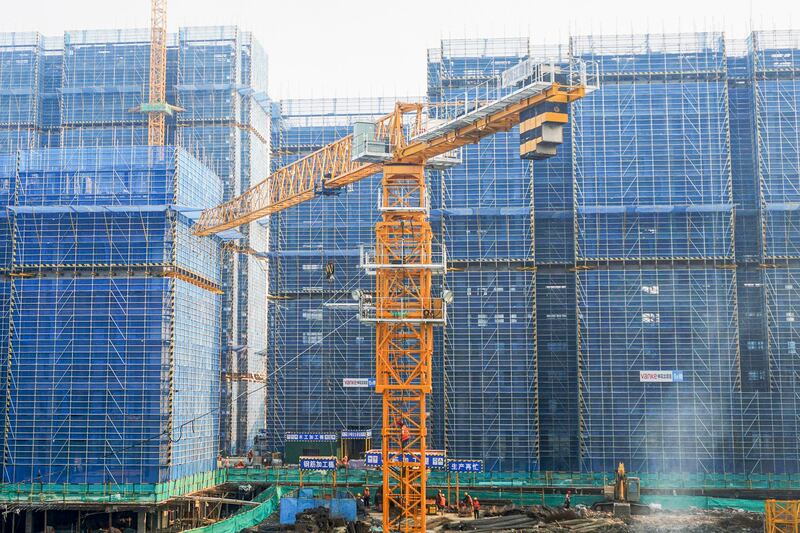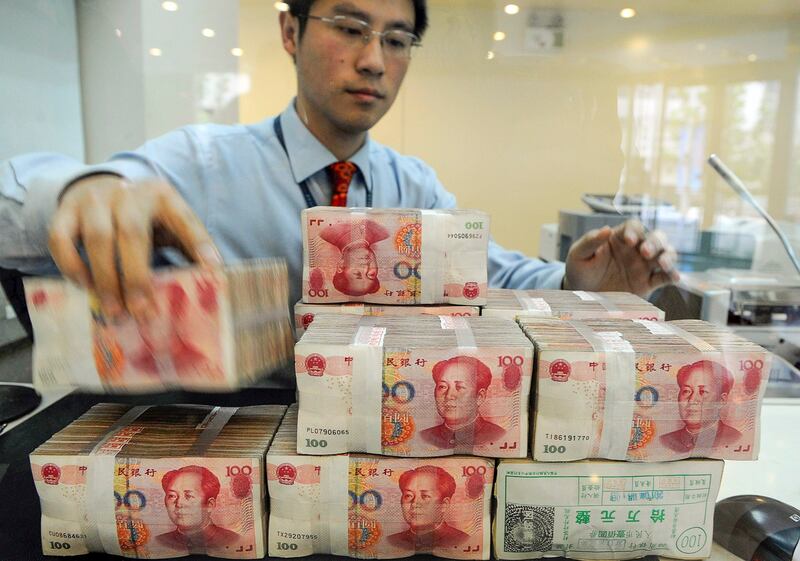The ruling Chinese Communist Party has announced it will hold a top-level plenary session on the economy several months later than usual, suggesting it is struggling to come up with a workable plan to stimulate growth and boost investor confidence in its handling of the economy, analysts said in recent interviews with Radio Free Asia.
The ruling party's Central Committee announced this week it will hold its delayed third plenary session of the 20th party congress in July, an unusual time of year for such a meeting. Third plenums -- full sessions of the 205-member, 171-alternate member committee -- have traditionally focused on economic matters.
But while state media have reported that the plenum will decide on reforms amid “challenges at home and complexities abroad,” analysts said the long delay suggests that the party leadership has struggled to reach consensus on what that might mean on the ground.
"If they had held it last year, or at the start of this year, they wouldn't have known what economic direction to take," U.S.-based commentator Cai Shenkun told RFA Mandarin, adding that nobody really understood the latest economic slogan to come down from the top, "new productive forces."
"They started pushing the idea of new productive forces, but everyone thought it was a joke," Cai said. "Now they may have found some practical ways to boost the economy."
The new focus will be breathing new life into the Yangtze River Delta region, using another buzzword -- "new development philosophy" -- state news agency Xinhua reported on May 2.
"Economic recovery is beset by multiple challenges, including insufficient demand, high operation pressures in enterprises, various hidden risks in key sectors, unsmooth domestic economic flow, as well as an external environment that is grimmer, more complicated and less certain," Xinhua quoted an April 30 Politburo meeting as saying.
One practical measure under the "new development philosophy" appears to be a recent attempt to boost flagging domestic demand through grassroots political campaigns to get people to buy more consumer goods, and to trade in their old domestic appliances for newer models, according to the article.
Another will be "new mechanisms for cooperation between the government and private capital," according to Xinhua.

That could be where another new economic buzzword -- "patient capital" -- comes in.
According to financial commentator Zheng Xuguang, that means encouraging investors to seek long-term returns rather than a quick buck, while serving the national interest.
But he said the government doesn't offer a stable regulatory environment in return, further damaging confidence.
"If they need long-term investment, then they can't have short-term policies that can just change overnight," Zheng said. "The two things go together."
He said the deep-seated problems with confidence in China, which have manifested in the "run" movement of people moving overseas in the wake of the lifting of COVID-19 restrictions in late 2022, are likely behind the delay in the Third Plenum.
That hasn't been helped by further shifts away from the economic reform era begun by late supreme leader Deng Xiaoping in 1979, according to Cai.
"They were a little confused by the plummeting exports," Cai said. "And on top of that, they moved politically towards the pre-reform era [of a state-controlled economy] last year."
Added to which, the looming possibility of an armed invasion of democratic Taiwan would also wipe out any prospect of foreign investors offering long-term, "patient" investments, he said.
China's leaders also remain concerned about "hidden risks," an oblique reference to the possibility of financial crisis, and called on cash-strapped local governments to "shoulder their share of responsibility," according to Xinhua's May 2 article.
The "integrated development of the Yangtze River Delta" is a key strategy attributed to Chinese Communist Party leader Xi Jinping, and seeks to position the region as a "pioneer, leader and driver of regional development," including the building of high-tech industrial clusters and integrated supply chains, the agency reported.
"Shanghai should play a leading role, and Jiangsu, Zhejiang and Anhui provinces should leverage their respective strengths so as to form synergy for continuously writing new chapters in the integrated development of the Delta," the agency paraphrased the Politburo meeting as saying.

Cai Shenkun said the region is likely to benefit at the expense of the Pearl River Delta, which includes Hong Kong.
"The Yangtze River Delta economy is a major leader of Chinese economic growth," he said. "The Pearl River Delta used to have that leading role, but Hong Kong has become totally paralyzed by [the political intervention of the] Chinese Communist Party."
"This basically sets the tone for the Third Plenum," Cai said.
Huang Tianlei , a researcher at the Peterson Institute for International Economics, said Chinese officials are playing down the seriousness of the economic situation, amid huge structural changes, as China pivots from being an export-dependent economy to something more dependent on its own citizens' spending decisions.
"China's economic policy has been focused for a very long time on the supply side, and has been very light on the demand side," he said. "This is the fundamental reason behind the current economic imbalance."
He said the plenum needs to address changes to the tax system, which is hugely dependent on corporate tax revenues, and on boosting sources of income for local governments, which have heavy liabilities but few sources of revenue in the wake of the bursting of the real estate bubble.
Economic commentator Li Hengqing, said the Xinhua report glosses over the extent of China's current economic crisis, however.
Perhaps more tellingly, it talks about reform without talking about the use of the market economy to distribute resources and benefits, or about restraints on state power, Li said.
"It's trying to boost confidence, but actually nobody has confidence in them," Li said. "Confidence is the key, but they're not doing the things that matter [to make it happen]."
Translated by Luisetta Mudie .
